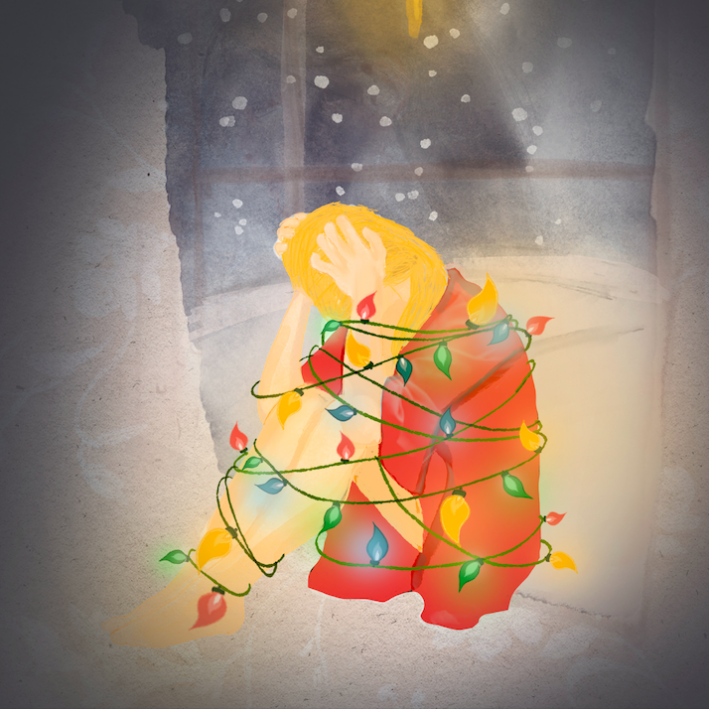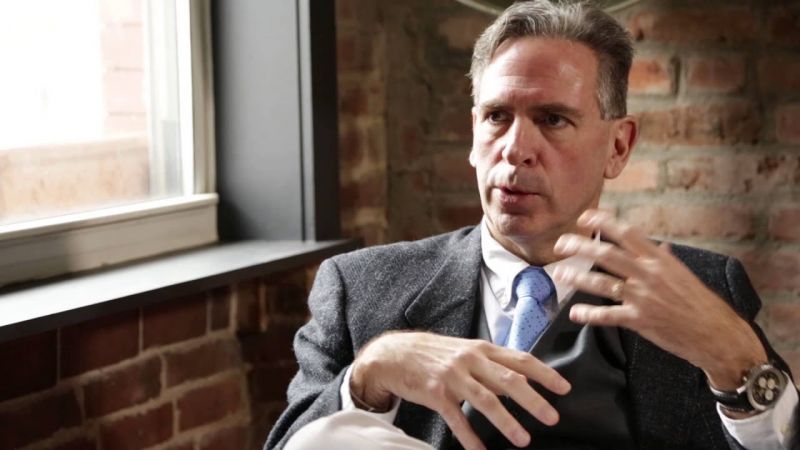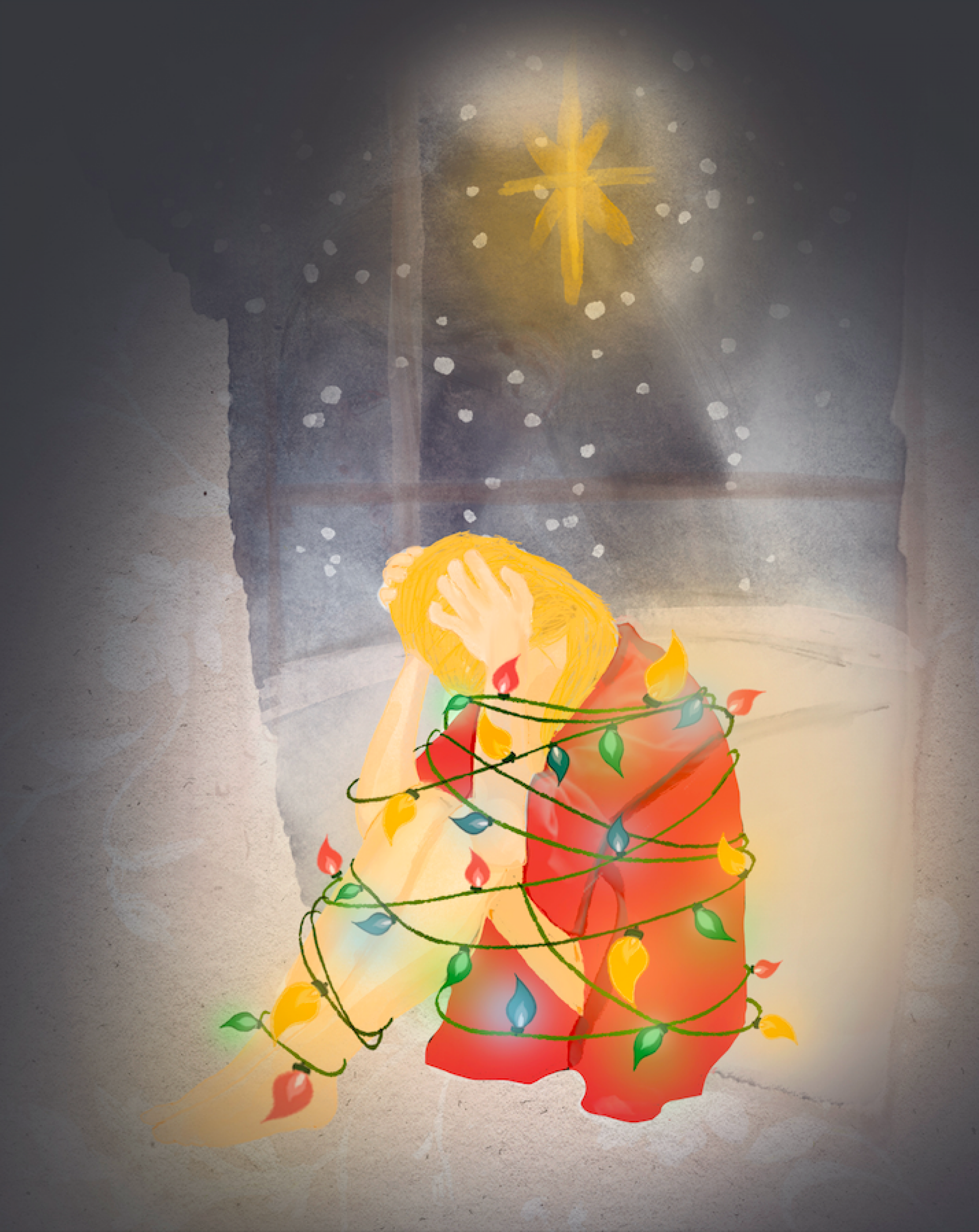Social Anxiety and Shame During the Holiday
Sharing solutions that will help you get through the season.
Escrito por Sarah McKinnon

01 When living with a mental condition, social gatherings can be stressful to navigate.
02 Sarah shares her experience with OCD and anxiety, and offers solutions to help you get through this holiday season.
“Oh, you’re like a delicate little flower who always needs gentle care. It’s okay, honey. You’re just fragile,” a family member once cooed to me in a baby voice. She held my hands with a confident smile, as if what she said would soothe my worries like a hot cup of cider.
I’m sure she had the intention of being encouraging, but all it did was crush my “delicate” petals. As someone with Harm Obsessive Compulsive Disorder, Severe Anxiety Disorder, and a newly developed Social Anxiety Disorder, I feel like anything but delicate. The unseen battles I fight on a day to day basis — and the energy and courage it takes to do what is seemingly normal to someone else — has given me a calloused heart.
If you have a mental disorder, you probably feel the same way. However, the shame I started to feel at social gatherings grew so strong that I began to believe in what shame was whispering to me in between the holiday music crescendos. The hardest part of it all is that shame often puts you in a lose-lose situation.

Dr. Phillipson Talks Science, Symptoms & Treatment of OCD
Here’s a hypothetical example that I have experienced the likes of, time and time again:
You spend some time at a gathering and run into triggers and stressors. This causes you to react, and now you have all of this worry and fear that you are “a burden” or “bringing the mood down.” So what do you do?
Option 1: You power through.
You slur in a few apologies or explanations, further exposing your struggles to the people around you. You remain in your distress, and feel like you need to keep saying sorry. As the shame gets stronger, you start to wonder if you even belong. People might start treating you differently in an attempt to accommodate, which leaves you feeling humiliated. Or worse, they say something that is actually a bit insulting. You compare yourself to the other people in the group who are “normal” and seemingly having a good time. You use the last of your energy to mask all these feelings, and aren’t mentally present to what’s going on in the room.
Option 2: You decide to remove yourself from the event or group.
This can look like leaving early or not going at all. At first, you have a sense of relief that you can “run away” from revealing more of your disorder, receiving more judgement, or avoiding even more triggers. Then, a tidal wave of sadness hits you. You didn’t actually want to be alone — you wanted to be with your friends and loved ones. You wanted to do that activity you were excited about, and you start to have FOMO, or fear of missing out.
You panic and imagine the people you were supposed to be with are having a great time, and you feel the envious emotions creeping in. Worst of all, you begin to believe that perhaps you not being there is best. You are a burden anyway, so without you, they can have more fun. The remainder of your day might be ruined, and you start to question who you are to others.

No matter what you choose, you ultimately wonder if you’re missing out on life. Both options make you filled with envy and confusion, and this is even more jarring during the holiday season, when you’re expected to be full of cheer. The long term damage of this shame is that you start to constantly contemplate who you are to others. Shame convinces you that because you experience these public moments, other people only see you as the “anxious” or “depressed” person. Then, you relay the events in your mind on repeat, even months later, which impacts your decision making about social ability during the holiday season.
For me, despite being an extroverted character, my anxiety disorders have made me feel exhausted after long periods of time with others. This eventually accumulates to me feeling physically unwell, and because of that, I have spent a lot of time meditating and practicing solutions that I’d like to share...
Be aware of when you’re overbooking yourself.
Saying “no” or leaving an event early is okay. Acknowledge that social gatherings are a lot to deal with, especially after experiencing a pandemic. You are completely normal for feeling overwhelmed at times, and know that you’re not alone. Check your calendar and commitments to find if you are overworking yourself socially or spreading yourself too thin with other obligations. Some of your anxiety may be because you have overcommitted to too many things and need to spend more time with yourself.
Know when to say no to “anxiety builders.”
Even after you have decided to attend an event, you are still allowed to turn down something that may increase your discomfort and stress. If you feel pressured to play a group game you don’t like or eat food you don’t want to try, know that it’s okay to not participate.
Find someone that makes you feel safe.
Don’t be afraid to bring a plus one to the event that can help you feel more comfortable. Work together to enjoy the gathering, and if able, let them in on the triggers you may have so that they can help you navigate them.
Plan when you will leave, especially if you’re going with other people.
If you’re going alone, create an end time for yourself. If you’re going with other people, have a discussion so that you can agree on what time to leave together. We all hit social limits, and your limits should be respected just as much as someone else’s. Be detailed with your plan, including methods for how to temporarily remove yourself if needed.
Investigate the itinerary beforehand.
Before committing to a gathering, don’t shy away from asking the host what’s happening. By knowing the schedule, you won’t be surprised or feel stressed by any sudden plans. This will also help you decide if you want to commit to the event, politely decline, or prepare accordingly.
Condiciones relacionadas
Offer to host.
Offer to host an event this season if it brings you a sense of excitement. For some people, hosting is a nice way to control the narrative, but more so, be in their own space. You can decide what food and activities to plan, and have the comforts of your home around you.
Make time for self care before or after the event.
Don’t be afraid to cut out time to unwind or prepare for an event. Plan something super relaxing ahead of a busy day ahead, or do an activity you love as a reward for when you’re done. I love writing even the smallest rewards in my planner (like a face mask), because we deserve to love ourselves.
Create a safe space for everyone to talk about their mental health.
If you feel comfortable, open the floor to discuss mental health topics. It doesn’t have to be super clinical. For example: “What is something you’d like to learn about yourself this season?” “Is there anything you’re worried about during the holidays that we can help with?” “Are you missing someone this year?” Finding common ground allows us to help one another, and brings in the reality that many of us are struggling with something.
Address judgmental comments.
If you feel hurt by something someone said — whether at the event or in the past — set aside five minutes with them when you feel safe and prepared. Explain that you are not placing blame or accusing them, but that you want to inform them about how their statement made you feel. By pointing out hurtful comments, you can remind others that their words can cause unintentional harm. Create a space for forgiveness, and provide some statement examples that may be more encouraging or helpful.
Do an act of kindness.
When in a state of stress, I find a great antidote is to shift the attention from myself to someone else. You can offer to help clean the dishes or decorate before the gathering. Sometimes, I like to bring little handmade gifts or letters to make my friends feel recognized and appreciated, and to start comforting conversations and memories.
Reflect with a gratitude list afterwards.
Regardless of how the event went, I find there is always one little thing I can write down and be grateful for.
If you decide not to attend an event, it’s okay to prioritize something else.
Just because you have time to go to an event, doesn’t mean you have the energy to socialize. Turning down invitations doesn’t make you less than or incapable, it just means you’re choosing to put your limited energy into something else. This could mean deciding to rest, because that’s just as important as being social. Remind yourself that the other people at the event will miss you, and a lot of the intrusive thoughts you have about how they perceive or feel about you are untrue. By establishing more boundaries and limits, you can find yourself enjoying the time that you do spend together.
<>
Remember, you are not a burden, and you do not need to defend yourself to others. Spend time with your mindfulness exercises, a therapist, or a professional to sort through the intrusive thoughts that can make social experiences difficult for you. Don’t be afraid to speak your mind, educate yourself, and bring love to the front of these gatherings. And who knows, your experiences may allow you to help someone else this holiday season.
ABOUT THE AUTHOR
Sarah McKinnon, Art Director at AREA 23 and Mental Health Activist
Apoya nuestro trabajo
Nuestra misión es cambiar la manera en que el mundo percibe la salud mental.



















